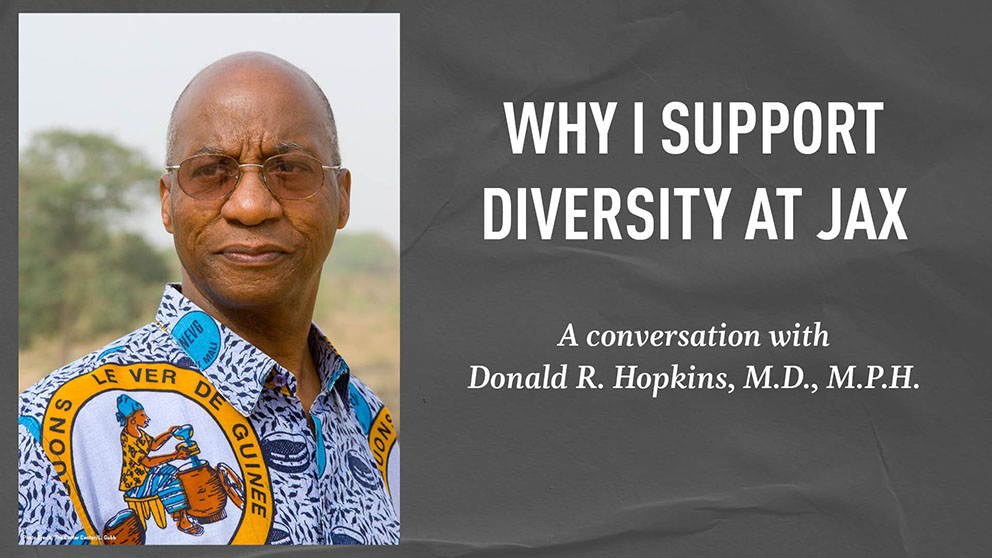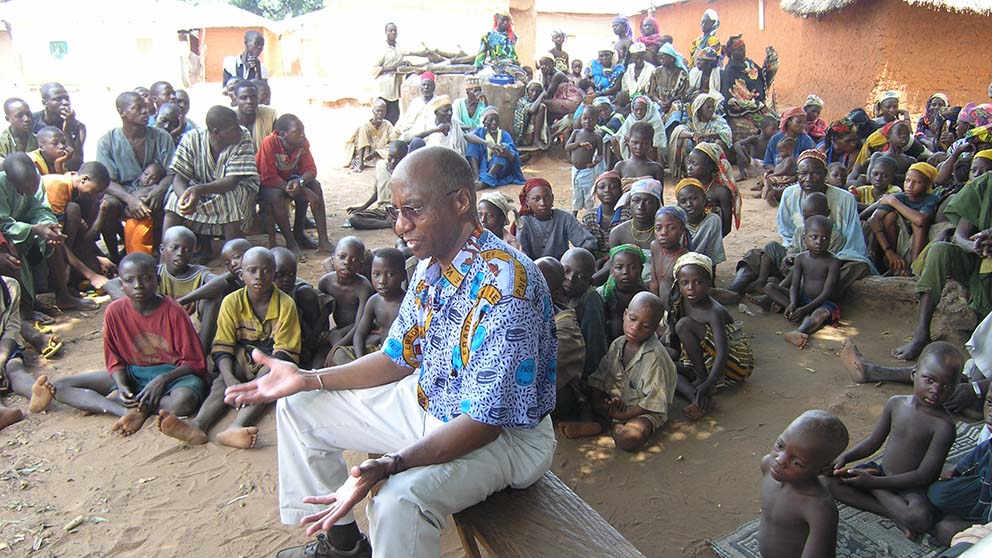
Public health expert Dr. Donald R. Hopkins reflects on his gift to The JAX Endowment for Diversity Initiatives
For as long as he can remember, Don Hopkins wanted to be a doctor.
Long before decades of service to The Carter Center, leadership roles at the Centers for Disease Control and Prevention (CDC), tenure as an assistant professor at Harvard and board certifications in pediatrics and public health, Hopkins made the pivotal choice to accept a spot at Morehouse College, the country’s only all-male historically black college or university (HBCU).
He was just 15.
“I like to say I am the product of many kindnesses,” Hopkins said. “At the time of my Morehouse acceptance in 1957, I was 15 years old, weighed 87 pounds and got headaches if I stayed up past 8 p.m.,” he recalled, laughing. “But I thrived under the guidance and kindness of my professors and classmates — a scenario that repeated itself throughout my education and my career.”
He enrolled in premed coursework, received private scholarships, and studied abroad at the Institute of European Studies in Vienna. His benefactor was Charles E. Merrill, Jr. of the Merrill-Lynch investment banking family.
“I wrote [Charles] many years later with a copy of my first book,” Hopkins said. “I told him that even if I became a billionaire, no amount of money could repay his gift of a Morehouse education and the opportunity to study abroad at that time in my life.”
Hopkins also was able to travel during his year abroad to Egypt, where he first encountered the public health challenge of trachoma, an infectious eye disease that is the leading cause of vision loss and blindness. The experience inspired him to focus on tropical diseases. He entered the University of Chicago Medical School as one of only four Black students, and the only Black student in his class.
Hopkins dedicated the next four decades to medicine and public health. He now serves as a special advisor for The Carter Center humanitarian organization, working to eradicate Guinea worm disease, a parasitic and painful infectious disease. He first joined the Center in 1987 as senior consultant for its health programs, leading efforts to eradicate both Guinea worm disease and river blindness worldwide. Hopkins' professional experience also includes roles as CDC deputy director and acting director, and assistant professor of tropical public health at Harvard School of Public Health. He also directed the Smallpox Eradication/Measles Control Program in Sierra Leone, West Africa.
 Hopkins speaks to a Nigerian village about Guinea worm prevention during a 2004 visit. Credit: The Carter Center/E. Staub
Hopkins speaks to a Nigerian village about Guinea worm prevention during a 2004 visit. Credit: The Carter Center/E. Staub
Giving the freedom to discover
Hopkins, who served as a volunteer leader for The Jackson Laboratory in the 1990s, recently made a gift to The JAX Endowment for Diversity Initiatives, which supports programming to foster an inclusive culture at JAX and build a diverse scientific community through specialized mentorship for trainees from groups underrepresented in science. He hopes that programs supported by the endowment expose more minority groups to the possibilities of a career in science.
“I am always interested in encouraging young minorities to get involved in science,” Hopkins said. “The challenge is to provide them access to situations where they have freedom to discover what interests them,” Hopkins said. “JAX’s programs will expose more minority populations to biomedical research and provide them the opportunity to see how exciting that field can be.”
Though he has adjusted his pace over the last few years, Hopkins still lectures at Harvard, participates in other select speaking engagements and continues to pay forward the many kindnesses bestowed on him. He advises rising underrepresented scientists not to be dissuaded from their path, even if they are the ones forging it.
“It is important to see people who look like you in the field,” Hopkins said, “but to young scientists I say don’t let the fact that you don’t yet see yourself discourage you, either. Somebody has to be the first.”
To learn more about diversity initiatives at JAX or to make a gift, visit our DEI at JAX page or www.jax.org/give.